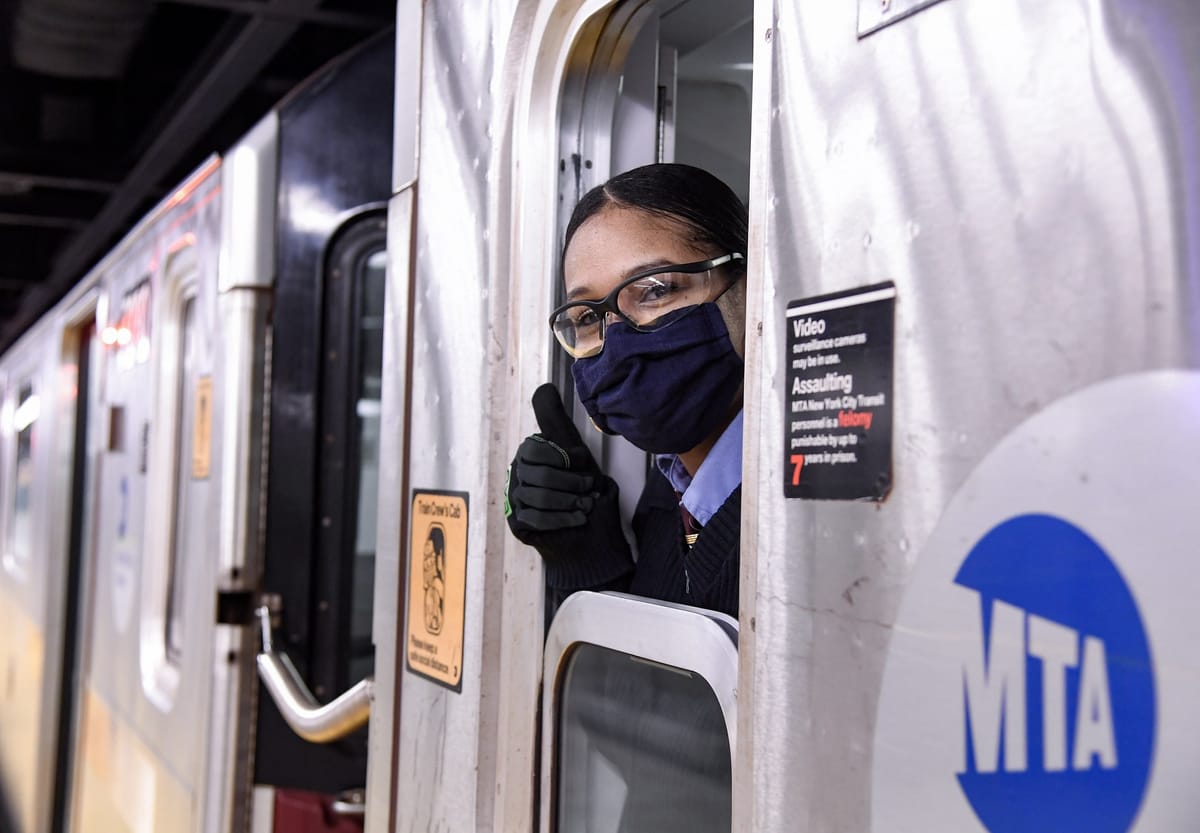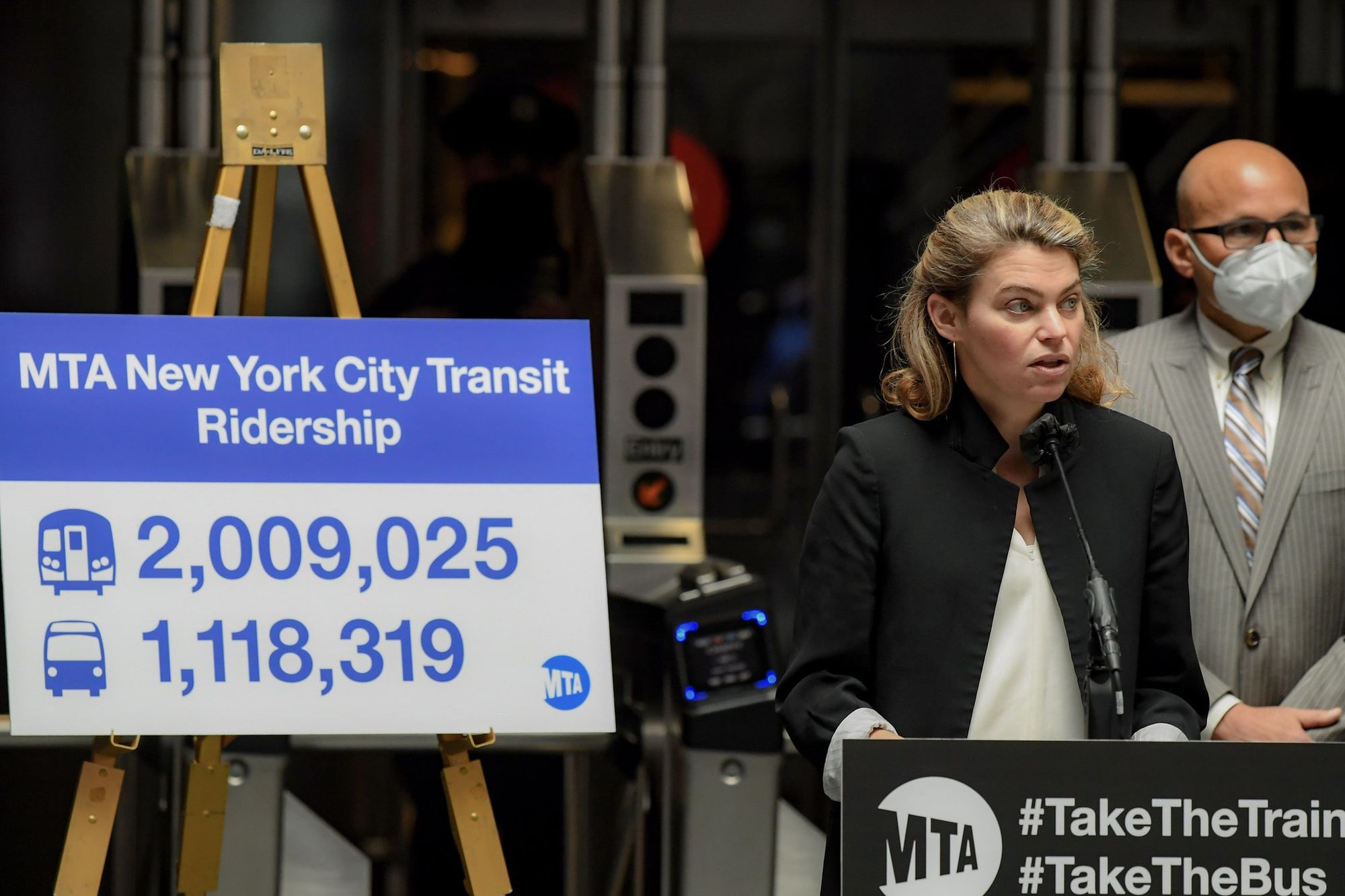DiNapoli Sounds Alarm About the MTA’s Debt


State Comptroller Thomas DiNapoli is sounding the alarm about the MTA’s debt levels, saying it could leave the agency unable to fully fund a capital program to improve service for bus and subway riders. The MTA, though, says the comptroller may be jumping to conclusions.
In a new report, the comptroller says that, unless the MTA finds new income or savings, it will have to cut its $54.8 billion 2020-2024 capital program by $2.9 billion or more, or risk further delaying projects already thrown off-course by the pandemic.
The report says that delays to capital projects, revenue declines and increased borrowing caused by the pandemic make the MTA’s plan to repair and modernize the city’s transit system “appear increasingly unrealistic.”
“The MTA and its riders face difficult years ahead, despite recent federal relief that helped avoid drastic short-term budget cuts,” DiNapoli said. “The MTA’s mounting debts and devastated revenue make it unlikely that it can afford all the work it planned. The numbers just don’t add up.”
“Either ridership and revenue must recover faster than the MTA expects, or the MTA must find new sources of income, or other financial support, to pay for additional debt service,” DiNapoli continued. “The President’s proposed infrastructure program may provide capital funding to help the MTA reduce its borrowing, but this is still uncertain.”

“If not, the MTA, and its customers, likely face serious cuts to upgrades and other work that could impact the quality of service.”
The MTA predicts ridership will not return to anything approaching pre-COVID levels until at least 2024. In the meantime, the agency has balanced its short-term budgets with a total of $14.5 billion in federal aid and an additional $2.9 billion borrowed from the Federal Reserve to cover operating purposes.
Now, the comptroller argues, the MTA can no longer afford to pay the debt service on $9.8 billion in bonds it planned to issue for the transit and commuter rail portions of its capital program.
Meanwhile, he says the MTA’s outstanding long-term debt has tripled in the last twenty years, and the percentage of revenue gobbled up by debt payments has also grown significantly, and estimates that by 2024, debt service will devour 23% of revenues.
And he criticized the MTA’s “chronic inability” to complete capital projects, pointing out that about half of the projects in the agency’s 2015-2019 capital program were unfinished by the end of last year.
MTA spokesperson Aaron Donovan argued that the agency’s construction and development arm was getting projects done “faster and less expensively” by “cutting past forms of red tape, using new contracting methods that create incentives for contractors to cut schedules and bundling projects, among other innovations.”
“We have worked safely to continue the capital program through the pandemic, bringing real progress on station accessibility, subway resignalling, major marquee projects like the L Project and LIRR Third Track, and projects to bring the system into a state of good repair,” Donovan told Bklyner.
As for the lending necessary to make future capital projects happen? Payments for the federal reserve loan won’t come due until December 15, 2023, the MTA says, and until the agency determines how it will close budget deficits for the next several years, it won’t know how much it would issue in bonds to meet that $9.8 billion commitment to the capital program.
Meanwhile, other unknowns hover over the agency’s finances. Officials celebrated the federal government’s green-lighting of a congestion pricing program, which supporters hope will generate $15 billion for MTA capital improvements. But while final approval for the program is expected later this year, revenue likely won’t materialize until 2023.
The MTA is also hoping to get $10.7 billion in federal support for capital improvements through the Biden administration’s infrastructure plan, including $2.9 billion for the Second Avenue Subway. But ongoing fights over the reinstatement of the SALT deduction, enacted by the Trump administration in 2017, could delay final approval of the legislation.
State legislation also commits both the city and state to put $3 billion toward the latest capital program. The state expects to issue $10 billion in bonds to fund this and earlier commitments, but the city has only appropriated $200 million so far, according to the comptroller’s office.





